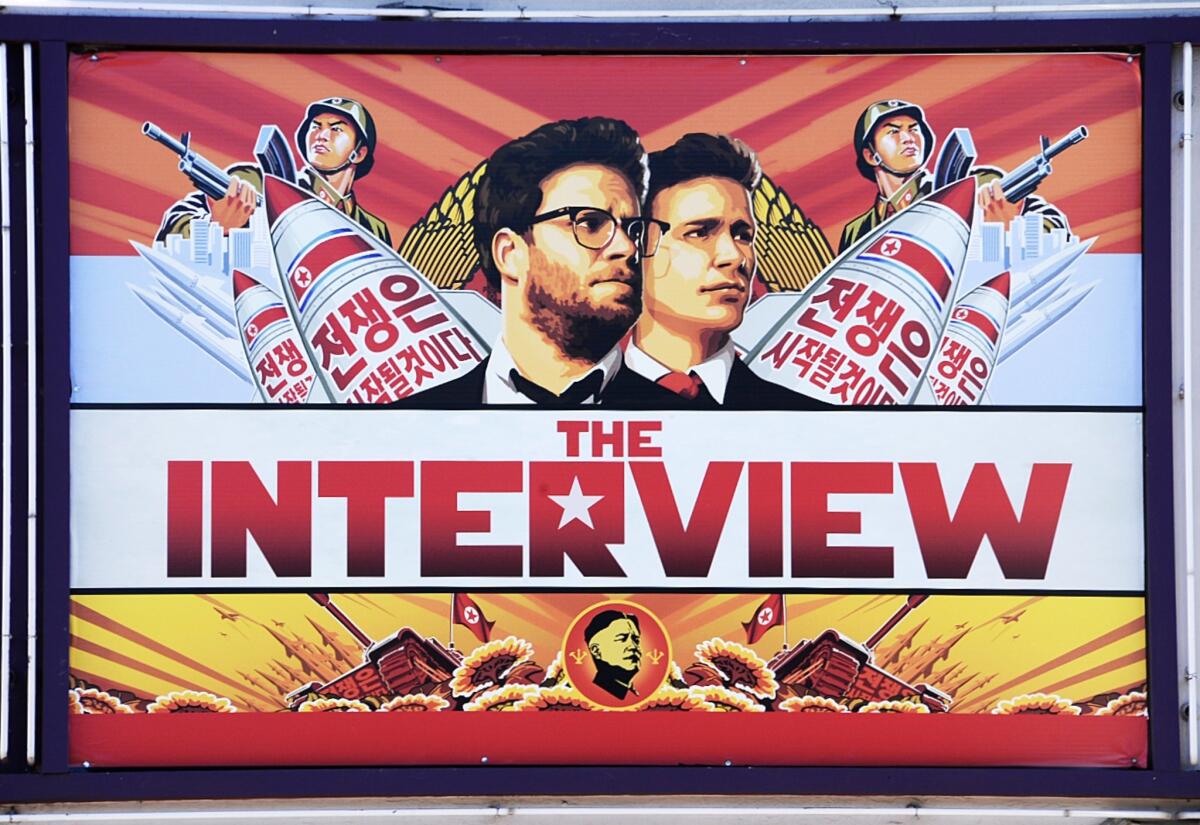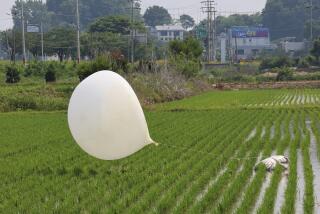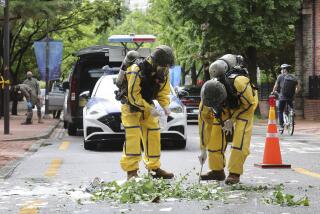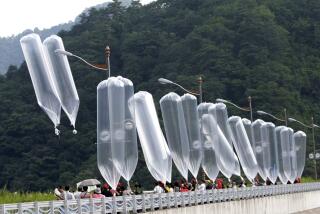Activists delay sending ‘The Interview’ via balloons into North Korea

Reporting from Seoul — South Korean activists have decided that the time is not yet right to attempt to fly balloons into North Korea carrying copies of “The Interview,” the Sony Pictures comedy that depicts an assassination attempt on North Korean leader Kim Jong Un.
Fighters for a Free North Korea, the group planning the airlift, told Voice of America on Monday that they would postpone, by at least a few days, Thursday’s planned launch of the balloons. The comedy starring James Franco and Seth Rogen centers on an American TV journalist traveling to North Korea to interview the leader, with secret CIA orders to take him out.
Thursday had been chosen as the date for the launch for a reason: It will be the five-year anniversary of the sinking of the Cheonan, a South Korean warship, in waters near North Korea.
A South Korean investigation found that a torpedo from North Korea sunk the vessel, killing 46 people. North Korea has repeatedly denied any involvement.
The balloon launches were meant in part to protest Pyongyang’s refusal to apologize for the sinking. But the activists were putting off the launch in the hope that North Korea would now apologize, group leader Park Sang-hak told VOA. Park did not immediately return requests on Monday to confirm his comments.
In a telephone interview last week with the Los Angeles Times, Park said he wanted North Koreans to watch “The Interview” so they could see the country’s rulers, who are glorified in state-controlled films and television, in a different way.
“I was sorry that North Koreans wouldn’t be able to see [the film], so I wanted to find a way of showing it to them,” Park said.
Park fled the North in 1999 and now lives in South Korea, where he devotes his time to sending information to North Korea using USB sticks, DVDs and pamphlets. He describes his work as a campaign to undermine the Pyongyang government’s tight control on information.
Park is regularly the target of vitriol from North Korea’s official propaganda organs, which have called him “human scum” and threatened to “physically eliminate” him.
On Sunday, North Korea issued a statement saying that it would use “all the firepower strike means” of its forces in the area to shoot down the balloons, which it called the “gravest politically motivated provocation” and “a de facto declaration of a war.”
Park’s efforts have also made him unpopular among some South Koreans. In October, North Korea used machine guns to fire on some balloons his group launched. Shells landed on the South Korean side of the border, but no injuries or casualties were reported.
South Korea residents of the area have held protests when the launches take place, arguing that the balloons pose a threat to their community’s safety. Meanwhile, groups on the left of South Korea’s political spectrum also oppose the launches, saying that they only antagonize North Korea and make inter-Korean rapprochement more difficult.
The administration of South Korea President Park Geun-hye has mostly stayed out of the debate, maintaining that the launches are a private exercise of freedom of speech.
“We just mean to send a peaceful message,” Park Sang-hak said.
The DVDs of “The Interview” his group planned to launch were altered so that the first several minutes of footage were of a state-produced North Korean movie, Park said.
That was in case authorities came to inspect the home of a North Korean who possessed the DVD, the person could pop the disc in and play it briefly to try to convince police it was simply an approved film.
Though he believes “The Interview” is a useful contradiction of North Korean state propaganda, Park says the film wasn’t to his taste, with jokes he found to be somewhat crude.
“Honestly, I didn’t really enjoy watching it, but I think it serves a righteous cause,” he said, “by showing that a brutal dictatorship must be opposed.”
Borowiec is a special correspondent.
More to Read
Sign up for Essential California
The most important California stories and recommendations in your inbox every morning.
You may occasionally receive promotional content from the Los Angeles Times.










